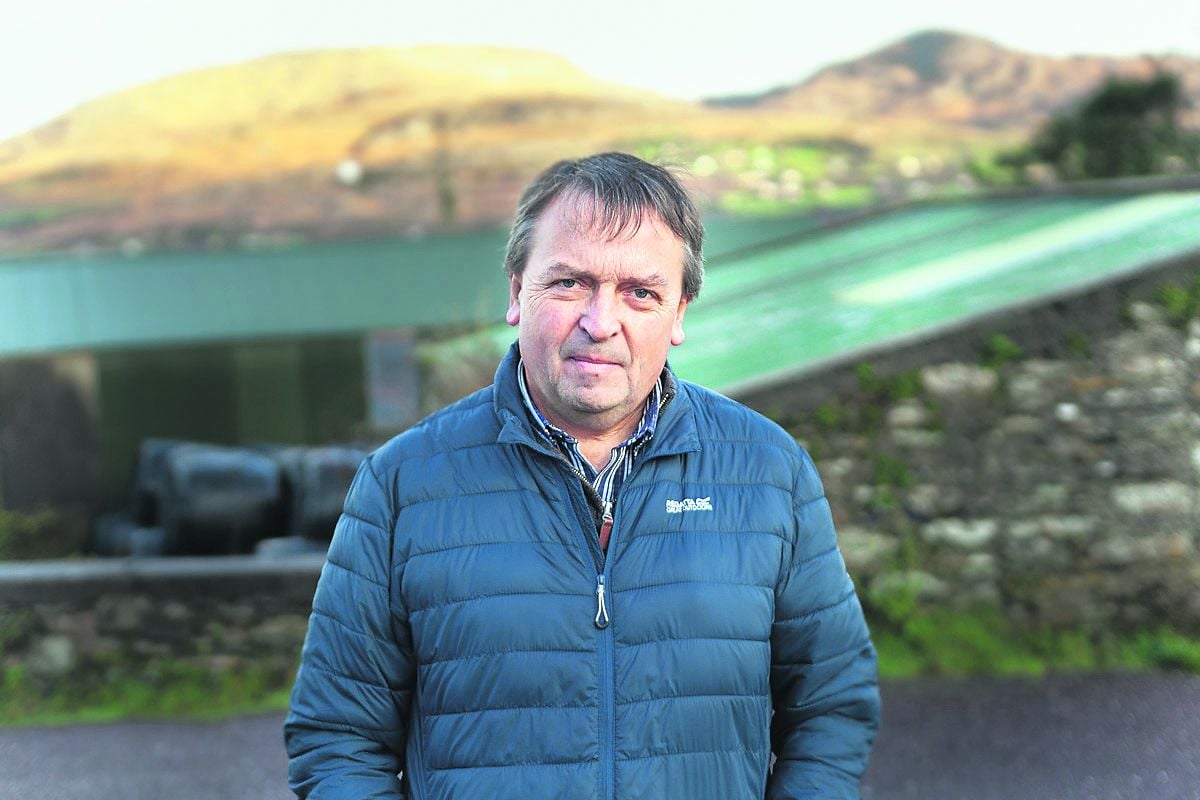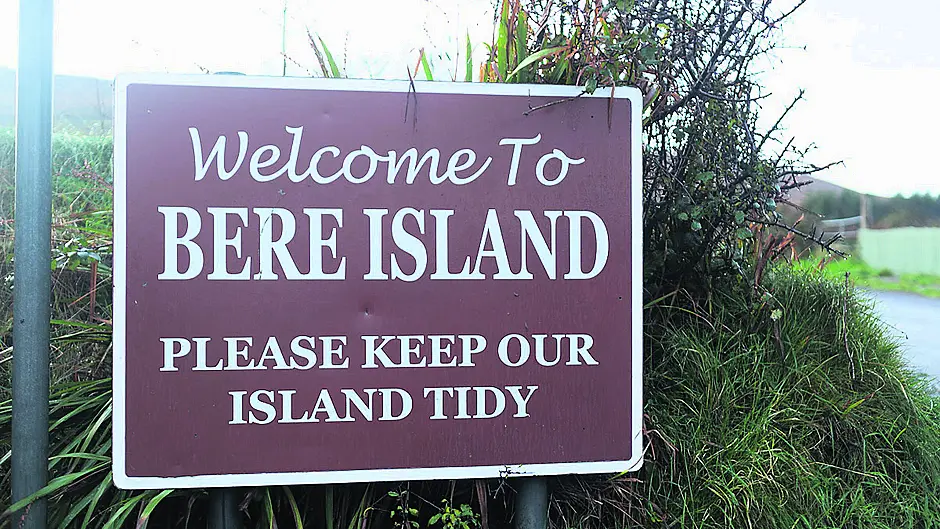Attracting young families is key to tackling depopulation and the ageing demographics on our offshore islands, like Bere Island. Housing – a major challenge – is a vital ingredient
BY NIALL SARGENT
LACK of housing on offshore islands is an EU-wide problem. This is all too true in Ireland, according to Rhoda Twombly, secretary of Comhdhail Oileain na hEireann or the Irish Island’s Federation, a representative group for the offshore inhabited islands.
Unlike some issues that are specific to individual islands, the threat of population decline directly linked to the housing shortage sprung up across all islands consulted by the Federation for its submission on the State’s new proposed islands policy.
‘The number one challenge is housing because if you don’t have housing, you can’t attract people,’ Twombly said.
‘Building on the work of the Federation, researchers at University College Cork (UCC) are currently conducting a national survey to determine the level of housing needs on offshore islands.
While still in the early stages of data collection, lead researcher Dr Conor Cashman said the feedback from community forums reflects the findings of the Federation in their own 2021 survey.
‘It speaks to that issue of depopulation and the concern around what we need to do to sustain island communities,’ Cashman added.
 John Walsh, coordinator of the Bere Island Projects Group, is trying to encourage youngfamilies to live on islands but housing remains a ‘huge blockage.’
John Walsh, coordinator of the Bere Island Projects Group, is trying to encourage youngfamilies to live on islands but housing remains a ‘huge blockage.’
The national island study is modelled on another UCC study on housing on the West Cork islands released recently. It found similar concerns raised across the islands of Bere, Sherkin and Oileán Chléire that combined account for 86% of the population of the West Cork isles.
The UCC report is the most comprehensive look at housing on islands to date, with 238 respondents pointing to a wide-range of issues including planning restrictions, affordability, lack of rental properties, unused State lands and derelict houses.
According to the report’s co-author Siobhan O’Sullivan, the lack of affordable and good quality housing, alongside higher than average building costs on islands, is ‘causing serious risk to the ability of islands to sustain themselves and to prevent depopulation.’
Residents on the West Cork islands have called for support to improve housing on the island for two decades. The 2002 Bere Island Conservation Plan, for example, stated that ‘affordable housing should be available on the island for all existing and permanent residents.’
Unfortunately, this is still not the case, according to John Walsh, a man of many hats as coordinator of the Bere Island Projects Group, board member of the Irish Islands Federation and chair of the European Small Islands Federation. ‘We are trying to encourage people, particularly young families, to live on islands,’ Walsh said, but housing remains a ‘huge blockage’ to getting young families to move there to counter an ageing population trend – a challenge to the ongoing viability of the islands as places to live.
 Ali Curry moved to Bere during the pandemic. (Photo: Niall Sargent/Noteworthy)
Ali Curry moved to Bere during the pandemic. (Photo: Niall Sargent/Noteworthy)
Ali Curry and her family are one such example, moving to the island from London during the pandemic with her husband –whose family is from the island – and their two young children.
Taking advantage of the ability to work from home, having more space surrounded by natural beauty, and being part of a tight-knit community were all driving factors for Curry.
‘We love it so much,’ she said. ‘So much so that ‘we dragged friends and family here to celebrate our wedding,’ creating a mini-music festival vibe on the island.
However, while Curry’s family are set-up well for the short-term, availing of a family home, they face barriers to their future on the island.
‘We’re incredibly lucky because we can use this [family] home but for a family of four, long-term it’s not quite fit for purpose,’ she said.
‘There’s a lack of housing stock, there’s some quite restrictive planning regulations, and then you’re adding 30-50% [in costs] when you’re building on an island. So that’s a long-term barrier for us.’
This is compounded by other issues, such as lack of childcare services after the island lost its creche several years ago, largely as a result of population decline over the years. This means that Curry and her partner were left in a position where full-time work for both of them was not feasible.
‘There’s this whole vicious circle as people migrate out, services are reduced, making it less attractive to live here.
‘There used to be a 24-hour nurse, the population went down, now it’s a Monday to Friday, nine-to-five nurse. So those [services] become diminished as people move out and then as the population decreases the island’s voice diminishes too,’ Curry added.
This is a big fear of John Walsh, especially for the running of vital services such as healthcare and education.
‘We’re lucky that the nurse is from the island, she has her own house, but if she retires tomorrow, and a nurse has to come in, there’s no place for her to go at the moment. And it’s the same as the [school] principal. They are renting at the moment and they can’t get a house.’
Private businesses on the island are also impacted, not least one of the island’s biggest employers, the Bere Island Boat Yard run by Gerard Sullivan.
Sullivan can have up to 20 people working at full tilt in the summer repairing and painting vessels. On a regular basis, he has seven or eight staff on the island and brings in another handful from the mainland.
The business has boomed since Sullivan constructed a cover for the dry dock business a few years back, operating in any season and ensuring vital year-round employment for islanders.
‘We have to make a living, and people have to live and work here, so I think it’s critical that we have people from the area living and working [on the island],’ he said.
Yet, any further plans to grow are hamstrung by the lack of housing, with no long-term tenancies available. Luckily, Sullivan said that they managed to source accommodation last year for several staff, without which ‘we would have been in dire straits.’
He even managed to attract an island-native engineer back to Bere from Cork city, but only with the offer of housing.
‘If we couldn’t offer accommodation, he wouldn’t have come back, no matter how much money we offered him. Housing from our perspective is absolutely crucial.’
The UCC report recommendations are not just something that the researchers want to see remain on paper, according to Elaine Desmond, co-author of the report, which she said is really a ‘call to action’ with the risk of permanent depopulation ‘really acute on the West Cork islands.’
 Gerard O’Sullivan who runs a boat yard on the island. (Photo: Niall Sargent / Noteworthy)
Gerard O’Sullivan who runs a boat yard on the island. (Photo: Niall Sargent / Noteworthy)‘Housing policy needs to be innovative and diverse given the need to attract a diverse population. It needs to be in collaboration with island residents and it needs to be holistic.’ This is all that islanders want, according to Gerard Sullivan.
‘It is absolutely crucial for the future of these places to have a system that we can get accommodation that is affordable and a way for people to get on the ladder here.’
If this doesn’t happen, he fears that ‘we’re not going to keep them. And if we don’t, we’re going to get older, retired people here and that’s not going to lead to a very vibrant community.’
Not only will the communities be less vibrant, but UCC’s Siobhan O’Sullivan says they may no longer exist as we know them today.
‘If housing isn’t delivered, along with other services to sustain the islands, there’s a risk they will just become sites of tourism rather than areas for full-time habitation. And then we’re going to lose that vital part of Ireland’s heritage, as well as having an obvious massive impact on people’s lives.’
• This article was originally published by Noteworthy, and was developed with the support of Journalismfund.eu as part of a project with The Ferret in Scotland and IrpiMedia in Italy.









